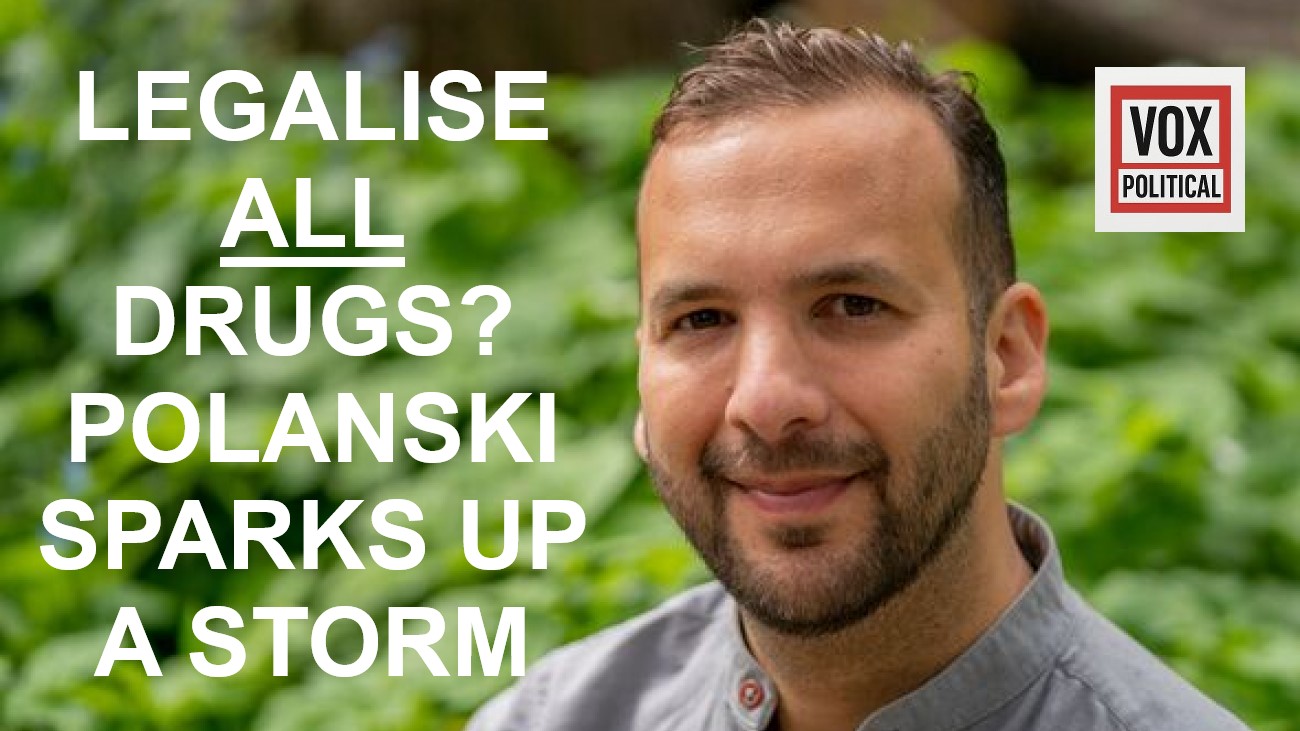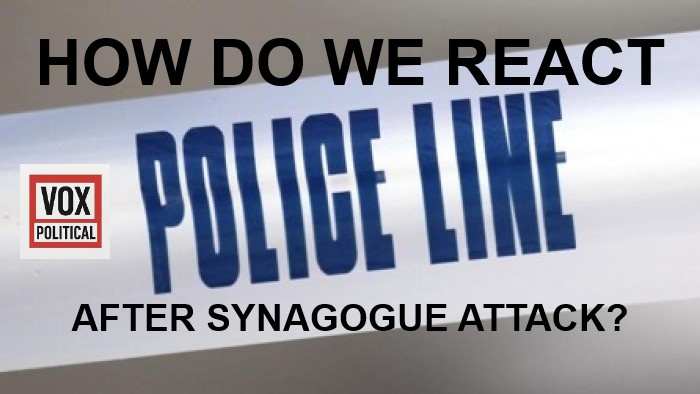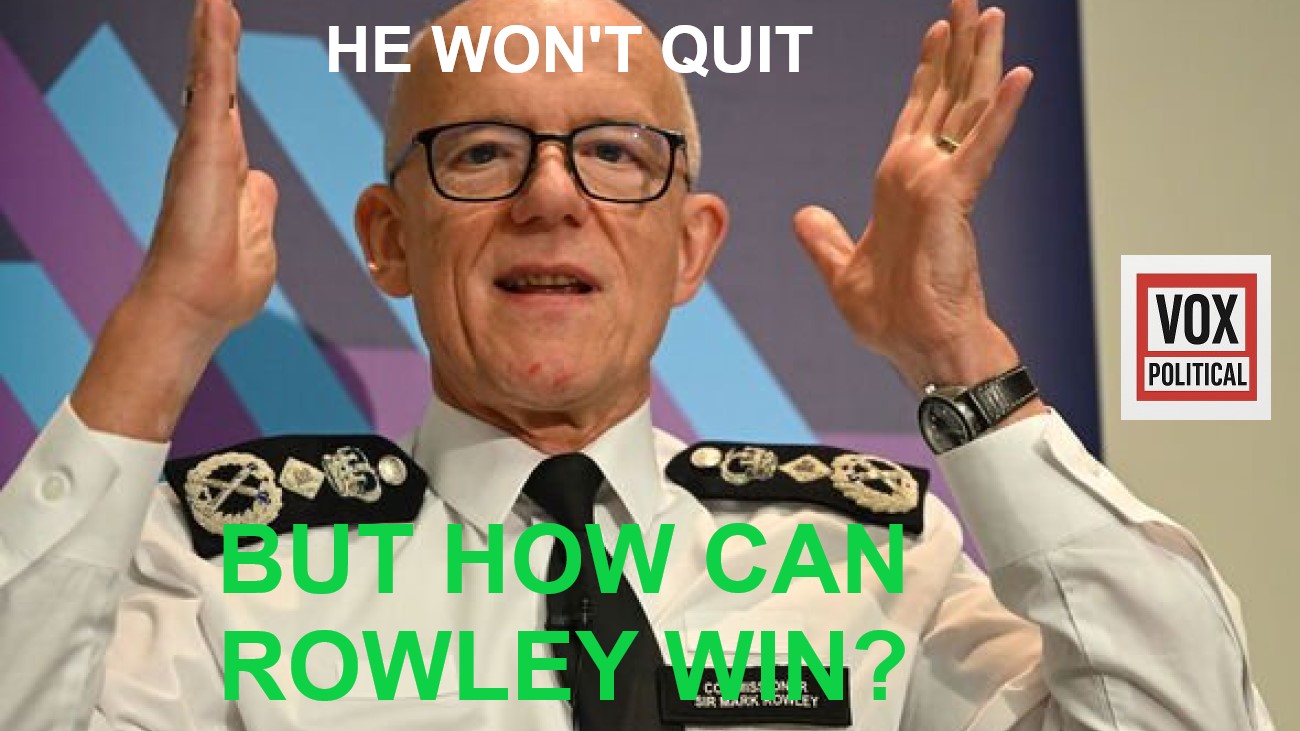Mahmood smears pro-Palestine protests as ‘un-British’ after Manchester attack
Share this post:
Home Secretary Shabana Mahmood has shamefully branded pro-Palestinian protests “un-British” in the wake of the Manchester synagogue attack in which two Jewish men were killed.
She said demonstrators should “step back” from planned marches, claiming it would be disrespectful to victims’ families.
This is wrong on several counts: her words were stigmatising, insulting and undemocratic.
By calling pro-Palestinian protests “un-British” in the aftermath of the Manchester attack, Mahmood is in effect linking peaceful protestors to terrorism.
That’s collective blame, and it mirrors exactly the mistake extremists make when they conflate “all Jews” with the actions of the Israeli military.
Both are rooted in racism.
Labelling a protest as “un-British” is not a neutral comment — it’s a way of saying that people who oppose the government’s line don’t belong in the national community.
In a democracy, that is extremely dangerous.
If anything, it is profoundly British to march against state violence and injustice — whether in the UK or abroad.
This framing also erases the fact that many Jews in the UK and worldwide are strongly opposed to the assault on Gaza.
Groups like Jewish Voice for Peace, Na’amod, and others have been marching alongside pro-Palestinian campaigners.
Mahmood’s remarks risk painting them as somehow “un-British” too — when in fact they are exercising exactly the freedoms that underpin UK democracy.
Her argument sets up a dangerous binary: either you sympathise with UK Jewish victims of terror or you sympathise with Palestinians.
That is a lie.
One can mourn Adrian Daulby and Melvin Cravitz, condemn anti-Semitism in all its forms, and oppose the mass killing of civilians in Gaza.
In fact, a decent society demands that we do all three.
Finally, Mahmood is positioning herself as “tough” by scapegoating protesters.
It’s cheap politics: rather than talking about how radicalisation happens or how communities can be protected, she is turning the focus onto visible, noisy demonstrators — because cracking down on marches is cheaper and easier than tackling extremism at its roots.
If this is how the new Home Secretary proposes to behave, she will disgrace that great office of state.
A minister who truly cared about preventing future attacks would confront the causes of radicalisation and division – not demonise those who march for peace and justice.
We are all endangered when ministers treat grief as a political weapon and dissent as a crime.
Share this post:
Legalise all drugs, says Polanski. Is he high?
Share this post:
Zack Polanski wants all drugs to be fully legalised – including Class A substances like heroin and crack cocaine.
Has he been taking something he shouldn’t?
Speaking to BBC South East ahead of the party’s conference in Bournemouth, Polanski argued that the “war on drugs has absolutely failed” and called for a public health-led approach rather than one dictated by politicians.
Before we all have a knee-jerk reaction: on paper, there is some logic to his stance.
Polanski framed it as a cost-saving measure for the public purse, noting that illegal markets fuel gangs and criminal activity.
Treating drug use as a public health issue could reduce crime, focus resources on rehabilitation, and improve outcomes for people struggling with addiction.
But politically, it is highly risky.
The Green Party’s recent successes in parts of Kent, Sussex, and Surrey have largely come from moderate voters, often former Conservatives, who care about local issues like protecting green spaces and housing.
For these voters, Polanski’s blanket call to legalise all drugs is likely to seem extreme, unsafe, or both.
Media headlines are already primed to focus on the “legal heroin” angle—hardly an image that builds confidence in the party’s ability to govern safely.
Polanski rejected the notion that his policies are radical, citing economic pressures on ordinary families, including stagnant wages, rising bills, and difficulty accessing NHS services.
But even framed in this broader context, legalising Class A drugs is going to be a hard sell to the average voter.
The practicalities also matter. Legalising substances like heroin or crack would require detailed plans for regulation, addiction treatment, and public safety.
Without that, critics will argue it is naive or reckless, undermining the party’s credibility.
This reveals a deeper strategic dilemma.
Polanski’s “eco-populist” image energises core activists but risks alienating crossover voters crucial to the Green Party’s success in traditionally Conservative areas.
It is a classic clash of radical credibility versus pragmatic vote-winning.
But there are middle-ground options: focusing on harm reduction, regulated prescription use, or separating recreational effects from harm—as seen in Portugal or US cannabis programmes—could win public support without appearing reckless.
Polanski has set ambitious targets for the next general election, hoping to win 30–40 seats, particularly around Brighton Pavilion.
But whether voters in the South East will embrace a full-drug-legalisation agenda remains highly uncertain.
Boldness is part of Polanski’s appeal—but when it comes to drugs, the Green Party’s electoral chances may have just gone up in smoke.
Share this post:
Tories call for Michelle Mone to be stripped of peerage over PPE scandal
Share this post:
The fallout from the High Court’s £122 million ruling against PPE Medpro continues:
Conservative leader Kemi Badenoch has said Baroness Michelle Mone should be stripped of her peerage, calling the scandal “enough” to justify such action and framing it as a matter of party integrity.
Mone, who was made a Tory peer by David Cameron in 2015, has already lost the party whip and is on a leave of absence from the House of Lords.
But peerages can only be removed by an act of Parliament, meaning any action would require full Parliamentary approval.
The SNP has also called for the UK government to act, showing cross-party concern over her status.
Chancellor Rachel Reeves reiterated that she does not want Mone to return to the Lords, though she cannot strip her of the title herself.
Mone continues to dismiss criticism, describing the court ruling as “an establishment win for the government.”
While the High Court ordered PPE Medpro to repay £122 million, there has been no suggestion yet that the government can reclaim money directly from Mone.
The focus of this intervention is entirely on her political and symbolic accountability rather than financial restitution.
It highlights the limits of both legal and parliamentary mechanisms when it comes to punishing misconduct by those with political and social privilege.
Share this post:
After Manchester: we must tackle the roots of terror
Share this post:
The UK is reeling after Jewish worshippers at a synagogue in Manchester were killed and injured in an apparently unprovoked anti-Semitic terrorist attack yesterday (October 2, 2025).
Two men – Adrian Daulby, 53, and Melvin Cravitz, 66 – lost their lives when 35-year-old Jihad Al-Shamie rammed his car into people outside the Heaton Park Synagogue in Crumpsall before stabbing others. Three more victims remain in hospital with serious injuries.
The attack is being treated by police as terrorism. The attacker was shot dead at the scene.
It took place on Yom Kippur, the holiest day in the Jewish religious calendar – and it would be foolish to think the timing was not intentional.
But why did it happen? What was the motivation?
It might be tempting to think that it was prompted by the ongoing conflict between Israel and Hamas terrorists in Gaza – but I think this would be misleading.
British Jews are not the government or military of Israel. While Jewish organisations and representatives here – like Chief Rabbi Ephraim Mirvis and the Board of Deputies of British Jews – may voice support for what that nation’s armed forces are doing, many oppose the assault on Gaza – some vocally. Targeting them is not only cruel but absurd.
This was not resistance, and it was not a blow against Israel. It was the deliberate targeting of British Jews, here in the UK, who were simply practising their faith on the most holy day of their calendar.
That makes it unambiguously anti-Semitic.
Let me be clear: holding British Jews collectively responsible for the actions of the Israeli state is racism.
And now I find myself worrying for my own Jewish friends, here in the UK.
To be clear (again): they don’t support aggression by Jewish people against anybody – certainly not against the people of Gaza or those who are trying to keep those people alive in the face of Israeli aggression. They deserve to live their lives in safety, to worship in peace, and to walk the streets of our towns and cities without fear.
I can’t guarantee that they will continue to enjoy those freedoms in the UK while we all live under the current tide of racism.
The logical next step, then, is to ask: why did this happen – and how do we prevent it from happening again?
We are told that Al-Shamie was a UK citizen of Syrian descent. Some may (let’s face it – will) seize on this to argue that immigration itself is the problem.
That is both lazy and dangerous.
The overwhelming majority of people who have come here from Syria – or from anywhere else – want nothing more than to live peacefully, raise their families, and contribute to society.
We need to remember that Syrian refugees fled from extremists like Islamic State in the first place. To blame them collectively for the actions of one man is as absurd as blaming all British-born Christians whenever a white far-right terrorist carries out an attack.
Al-Shamie’s attack is not the result of immigration – it is due to radicalisation.
Just as we have seen white Britons radicalised into neo-Nazism or violent anti-Muslim hatred, so too can people of other backgrounds be manipulated into Islamist extremism.
The common thread is not nationality but extremist ideology – and a society that sometimes fails to detect or disrupt it before it turns deadly.
More concerning is that Al-Shamie was not known to counter-terrorism police. That raises troubling questions:
-
If he had never appeared on the security services’ radar, how was he radicalised?
-
Was he acting alone, or did others encourage him?
-
And, perhaps most importantly, how does our society allow hatred like this to fester until it erupts into murder?
The name “Jihad” means “holy war”. That does not make everyone with that name a terrorist – but the fact that his name was such an obvious indicator does highlight the need for better ways of spotting and challenging extremist beliefs before they manifest in violence.
Suppose an anti-immigration protester changed his first name so he was now called (for example) Xenophobia Jones. Would the cops think he was perfectly harmless and not pay any attention to him?
That being said, the name in itself should not be enough to justify surveillance; it is only if it is combined with other factors that it would become a flag for continued attention.
The issue here is not simply the abhorrent beliefs of one individual; it is about how hatred is incubated.
Islamist extremists, far-right agitators, and racists of every stripe exploit international conflicts, cultural anxieties, and political failures to persuade people that their neighbours are the enemy – and those behaviours should be detectable, meaning their result – acts of violence like we had yesterday – should be preventable.
I have previously stated my belief that a fundamental qualification for people to be allowed to immigrate into the UK is that they support the prevailing way of life here; they should be coming here because they want to be British – not because they want to set up a mini-version of their home country in England, Wales, Scotland or Northern Ireland.
We should expect people coming here to integrate into our society. It occurs to me that there should be some form of probation system that monitors their progress in that direction over time and that may detect any racist or terrorist sentiment before it can erupt into violence.
That is not to say that we should suspect all immigrants as possible terrorists; the system I’m proposing would be about helping people, who may come from radically different societies, to adjust and integrate into ours.
If we want to prevent attacks like this, we need to act:
-
Protect vulnerable communities: synagogues, mosques, churches, and other places of worship should be guaranteed safety without having to become fortresses.
-
Tackle radicalisation at its roots: that means honest conversations within communities, education in schools, and better systems for early warning when people are sliding towards extremism.
-
Challenge scapegoating across the board: whether it is anti-Semitism, Islamophobia, or anti-refugee hatred, all forms of prejudice create the conditions for violence.
-
Stand in solidarity: none of us can afford to see Jewish safety as a “Jewish issue” or Muslim safety as a “Muslim issue”. If extremists succeed in making one group a target, it will not be long before others follow.
It is likely, of course, that the authorities will focus on what is easiest, most visible – and cheapest: increased police presence, extra funding for synagogue security, public statements condemning the attack. All of that is necessary – but it is only surface-level action.
What will cost more – and require more courage – is tackling the roots of terrorism, racism, and xenophobia in our society. It means asking uncomfortable questions about how hatred is incubated, how extremist ideologies take hold, and why communities sometimes fail to speak out or act before violence erupts.
If we settle for easy, visible gestures, we will leave ourselves vulnerable to future tragedies. If we are serious about protecting all communities – not just Jewish ones – we must commit to long-term, hard work: education, integration, dialogue, and the dismantling of the ideologies that allow murderers like Al-Shamie to act.
Yesterday’s attack should not just shock us – it should mobilise us to confront the deeper problems that make such violence possible.
Anything less is a failure of both policy and conscience.
Share this post:
Rowley refuses to resign after Panorama scandal – but how can he win now?
Share this post:
Metropolitan Police Commissioner Sir Mark Rowley is refusing to resign in the wake of the BBC Panorama investigation into racism, misogyny and abuse inside the force – but he is caught between a rock and a hard place.
Rowley has said the “misogynists and racists” inside the Met want him out because he is taking them on.
He points to the removal of nearly 1,500 officers and staff since he became commissioner three years ago as proof that reform is happening.
London Mayor Sadiq Khan has given him his “full confidence”, describing Rowley as the right man to clean up the Met.
The argument for Rowley staying is simple: if he goes, it hands victory to the very officers Panorama has just exposed. Reform, his backers claim, would be derailed.
But there is just as strong a case for him going. The Panorama revelations only came to light because undercover journalists exposed them, not because the Met rooted them out. If Rowley’s reforms were biting, why is it still outsiders doing the work?
He also continues to deny that the Met is “institutionally” racist, sexist and homophobic – despite the Casey Review, the London Mayor and former senior officers all agreeing that it is. Without that admission, his credibility on reform looks thin.
He talks about a “minority” of officers – letting the ‘bad apples’ framing creep back in, when the evidence shows repeated, systemic culture.
And his own line that the toxic behaviour has merely been driven “underground” is chilling. It suggests not that the problem is being eradicated, but that abusive officers are simply hiding it better.
As Parm Sandhu put it: “They’ve been exposed before, buried before, tolerated before.” It looks like the same cycle all over again.
Keir Starmer has said the footage is “shocking” but stopped short of demanding anything concrete. He has a track record of defending policing.
Sadiq Khan, despite criticising the need for journalists to do the Met’s work, is still backing Rowley.
So the establishment line is: keep him, he’s the man to fix it.
But public patience is exhausted. Each scandal is supposed to be “the turning point” — and yet here we are again.
If the culture is this entrenched, perhaps no single commissioner can reform it from within. In that case, his refusal to accept institutional rot is exactly why he should go.
Alternatively, we could say that Rowley’s position is untenable because the public cannot trust a commissioner who is always caught flat-footed by investigative journalists, rather than leading change himself.
So Rowley’s position is impossible. If he resigns, he admits failure. If he refuses, people will say it anyway.
Damned if he does, damned if he doesn’t.
Share this post:
- ☕ Support Vox Political on Ko-fi or donate via PayPal
- 📘 Buy our books — political analysis and satire you won’t find elsewhere
- 📨 Join the mailing list for real headlines, direct to your inbox
- 🔗 Follow us on Facebook and Twitter/X
Welcome to Vox Political – watch this first!
Get The Whip Line – July 2025!
Support independent journalism — and receive Vox Political’s latest collection of fearless reporting.
💻 Donate £15 via Ko-fi and get the eBook
📚 Donate £20 via Ko-fi and get the paperback
👉 Claim your copy now:
Support on Ko-fi →
No billionaire backers. Just sharp, uncompromising political journalism — powered by readers like you.
Grab your copy today — support real journalism and keep it free from corporate influence!







